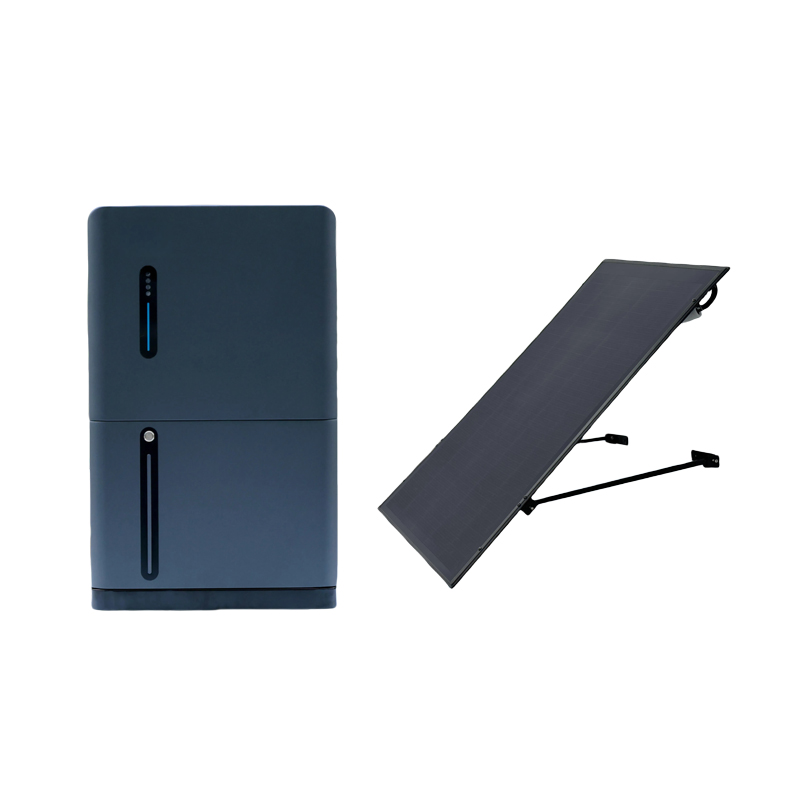Balcony energy storage systems are rapidly gaining popularity as a convenient and eco-friendly solution for homeowners, especially those in apartments. These compact systems allow you to harness solar power directly from your balcony and store the generated energy for later use. Let's delve into what a balcony energy storage system is all about.
What is a Balcony Energy Storage System (BESS)?
A balcony energy storage system, often abbreviated as BESS, is a self-contained power generation and storage unit designed for use on balconies. It typically combines several components: solar panels for balconies to capture sunlight, an inverter to convert DC power to AC power suitable for household appliances, a Solar Battery Energy Storage component to store the generated electricity, and a smart management system to control the flow of energy. Think of it as a mini balcony power plant right on your balcony, providing clean and reliable energy. Some people also might called it balcony power station.
Key Components of a Balcony Energy Storage System
Solar Panels: These solar panels for balconies capture sunlight and convert it into direct current (DC) electricity. The size and number of panels depend on the available balcony space and the desired power output.
Inverter: The inverter converts the DC electricity generated by the solar panels into alternating current (AC) electricity, which is the standard type of electricity used in most homes.
Battery Storage: This is where the generated electricity is stored for later use. The battery capacity determines how much energy can be stored and for how long. Lithium-ion batteries are commonly used due to their high energy density and long lifespan. This component is the core of Energy Storage System.
Charge Controller/Energy Management System: This component regulates the charging and discharging of the battery, ensuring optimal performance and preventing overcharging or deep discharging, which can damage the battery. It also manages the flow of energy between the solar panels, the battery, and your household appliances.
Benefits of Using a Balcony Energy Storage System
Reduced Electricity Bills: By generating your own electricity, you can reduce your reliance on the grid and lower your monthly electricity bills.
Increased Energy Independence: A balcony solar system provides a level of energy independence, especially during power outages. The stored energy can be used to power essential appliances like lights, refrigerators, and communication devices.
Environmental Friendliness: Solar energy is a clean and renewable energy source that helps reduce carbon emissions and combat climate change. By using a balcony energy storage system, you contribute to a more sustainable future.
Easy Installation: Compared to traditional rooftop solar systems, balcony energy storage systems are typically easier to install and require less permitting. Many systems are designed for DIY installation, though professional installation is always recommended.
Space-Saving Design: Specifically designed for balconies, these systems have a compact footprint and don't require valuable ground space.
Considerations Before Purchasing
Balcony Orientation and Sunlight: The amount of sunlight your balcony receives directly affects the performance of the solar panels. South-facing balconies generally receive the most sunlight.
Local Regulations: Check with your local authorities and homeowner's association (HOA) to ensure that balcony solar systems are permitted in your area.
System Size and Capacity: Choose a system size and battery capacity that meets your energy needs. Consider your average electricity consumption and the appliances you want to power.
Budget: Balcony energy storage systems vary in price depending on their size, features, and battery capacity. Set a budget and research different options to find the best value for your money.
Safety: Ensure the system is properly installed and grounded to prevent electrical hazards. Consult with a qualified electrician to ensure the system meets all safety standards.
FAQ for Potential Buyers
Q: How much electricity can a balcony energy storage system generate?
A: The amount of electricity generated depends on the size and efficiency of the solar panels, the amount of sunlight your balcony receives, and the battery capacity. A typical system can generate enough electricity to power essential appliances and reduce your electricity bills.
Q: Can I install a balcony energy storage system myself?
A: Many systems are designed for DIY installation, but professional installation is always recommended to ensure safety and optimal performance. A qualified electrician can ensure the system is properly installed and grounded.
Q: How long will the battery last in a balcony energy storage system?
A: The lifespan of the battery depends on the type of battery and how often it is charged and discharged. Lithium-ion batteries typically have a lifespan of 5-10 years.
Conclusion:
A balcony energy storage system offers a convenient and sustainable way to generate your own electricity and reduce your reliance on the grid. By understanding the key components, benefits, and considerations, you can make an informed decision about whether a balcony energy storage system is right for you. As technology advances, we can expect to see even more efficient and affordable balcony power station and balcony power plant options become available, making solar energy accessible to a wider range of people. Investing in a balcony solar system is not only a smart financial decision but also a step towards a greener and more sustainable future.


